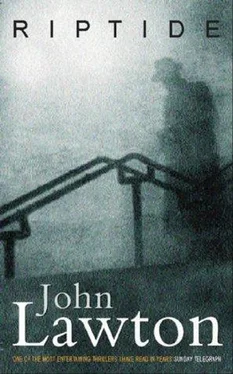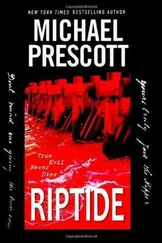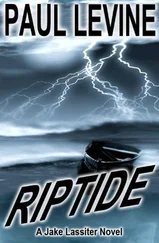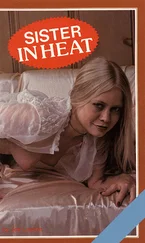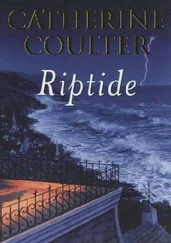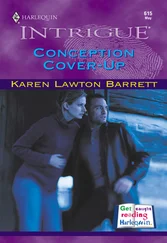‘A house in mourning,’ Troy said, tacking away.
‘Wot?’
‘You’re leaving your mother in the lurch. She’s lost two children and her husband. Has it occurred to you she might just need you?’
‘Need me? Mum don’t need me. If I stay it’ll be like being a kid again. It’ll be like being the eldest kid in a family of seven. I was minding Kev and Trev by the time I was five, I brought up Vera and Tel. My mum don’t need me. My mum’s got Vera now. You think Vera’s ever gonna give up her place in front of the Aga? That’s better than sitting at God’s right hand that is. You think Vera’s ever gonna get herself a man? She’s there for life, is Vera.’
‘I say again, your mother needs you.’
Kitty was crying now. Silent tears upon her cheeks. She moved off the chair, on to her knees, next to the chaise longue where Troy lay stretched out like an invalid, her hands touching Troy, one on his chest, the other wrapped in his hair above his ear. She looked up at him.
‘My mum needs me, does she? Troy-you don’t need me. That’s about what it comes down to, isn’t it?’
Troy said nothing. Kitty kissed him once on the lips. Got to her feet. Walked to the door and looked back at him.
‘I’m going now. I’m going to America. Do you hear me Troy? I’m marrying Calvin in the morning. I’m going to follow the yeller brick road and I’m going to live in America.’
‘And?’
‘And you could mind. Just a bit, you could mind. You could care just a bit more.’
No he couldn’t.
Shostakovich’s Largo spun on to its end. Troy heard it out, heard it spin to infinity in its final groove. He let it spin, over and over again. He did not bother with the Allegro non troppo. There would be another time.
Reggie was sitting up in bed. A glass of brandy, a good book- The American by Henry James, the tale of a young, rich American-well, obviously-marooned among the importunate toffs of Europe. Pride and no-old-money versus innocence and oodles of new-money. Wasn’t that the plot of every Henry James? How can a chap get away with telling the same story over and over again? Anyway, it seemed appropriate. It put Reggie vaguely in mind of… and darnmit, what was it Maisie knew? He’d forgotten.
The telephone rang. It was 2 a.m. Another night owl.
‘You weren’t sleeping, were you Reggie?’
‘You know me, Gordon. Up till the birdie tweets.’
‘Are you dressed?’
‘A matter of seconds, old chap.’
‘Good. Get over here right away will you. The PM wants a word.’
‘With me?’
‘Yes.’
Reggie could hear a wee tinge of exasperation creeping into McKendrick’s voice.
‘Where exactly is “here”?’ he asked tentatively.
‘Down Street. He’s decided to sleep in Down Street tonight. Don’t ask me why.’
Reggie could not remember quite when the London Passenger Transport Board had abandoned Down Street Station on the Piccadilly line-it had stood opposite Green Park, pretty well halfway between his old house in Chester Street and his tailor in Jermyn Street, quite the handiest of stations-but in its new guise it made an absolutely bomb-proof private shelter for Churchill. He understood McKendrick’s ‘don’t ask me why’-keeping track of precisely where the PM laid his head each night was a nightmare. Both Downing Street and the bunker of rooms clustered around the Cabinet War Rooms had been strengthened, and he had beds in each, he also had Chequers, the country home of every Prime Minister since… since someone Reggie couldn’t quite remember had given it to the nation in the reign of… God knows… Etheldogg the Scoundrel?-and on nights when the moon was full he had Dytchley Park, and, of course, he had his own home at Chartwell. Being Winston Churchill, Reggie thought, was a bit like being England’s most well-heeled gypsy.
Well-heeled and well-guarded. When Reggie got out of the cab a couple of young Naval lieutenants were waiting for him, and behind them in the shadows, two armed guards in plain clothes.
‘A twopenny one to Earl’s Court,’ said Reggie.
From the darkness of the station entrance McKendrick’s voice growled, ‘Stop arseing about!’
Reggie followed McKendrick down the spiral staircase, deeper and deeper, wondering if Churchill might actually have a hammock strung between the tracks. Not far above platform level, McKendrick opened a steel door in the wall, led Reggie through an ante-room into a small dining room, with a central table, six chairs and a standard lamp with a big floral shade. It looked like a dream. A complete confusion of categories. The dining-room furniture, in that immovable Georgian taste that characterised every upper-class dining room in the land, a lamp from a suburban sitting room in South London, and instead of the stripy Regency wallpaper-also immovably upper class-London Transport’s black and white tiles, delicately interspersed with electrical junction boxes, cables as thick as sausages and a polite notice urging the reader to ‘Now wash your hands!’
Reggie plonked himself on a chair, McKendrick picked Up a newspaper off the table and looked grim.
Churchill shuffled in. Carpet slippers and a siren suit in a tasteful shade of brown. Reggie found himself wondering what he’d look like in a yellow siren suit and the image of Winnie the Pooh sprang into mind. Winston and Winnie, simply swap Hunny for Havanas.
‘Good evening, Reggie, or rather I should say good morning.’
He flipped open a flat cigar box on the table and went through the smoking man’s ritual of clipping and pricking, saying as he did so, ‘Sorry about the ungodly hour, but Gordon has something we’d like you to read.’
McKendrick handed Reggie the newspaper. It was tomorrow’s, or rather today’s, Sunday Post.
‘We received this at midnight. If you’d just read the editorial…’
Newspapers were so thin these days. Four pages on the ration. And editorials so short. Reggie flipped to the centre pages. It wasn’t short. It was inordinately long. The papers might be rationed for newsprint, old Troy was not rationed for words. The first waft of best Cuban drifted across the table.
The Sunday Post
When I first came to these islands in the winter of 1910, I did not doubt that I would make my home here. As I have most certainly told my readers on too many occasions, having seen the prospect of England opened up to me when I stood upon the French coast and watched M. Bleriot take flight, I entered into an exchange of letters with Mr H. G. Wells on the subject, fascinating to us both, of powered flight. When Mr Wells invited me to visit him in England I came. I stayed. My wife, our son, our two daughters and I ended our years a-wandering. I knew, had known throughout that time, that I would be unlikely in the extreme to see my native Russia again. Perhaps the luxury I have allowed myself of speculating in this column upon the nature and the fate of that unhappy land has been the nostalgic indulgence of an exile-or, on the other hand, perhaps it has been a necessity. In their fate lie all our fates. When, two years ago, I warned my readers that the Nazi-Soviet pact was not the act on which to judge and condemn a country making itself anew, I was all but deluged in mail. Little of it complimentary. Indeed I had not felt so scolded since my denunciation of the Zinoviev letter as a forgery in 1924. Well, I will say to my critics, read no further or take a stiff drink now, I am about to hector you again upon that same matter. Russia…
Russia is a land of extremes. To those of you who think it a land locked in permafrost, I would say that I have childhood memories of sunshine quite as glorious as any summer that tinges your memories of the playing fields of Eton or Wakes Week in a Lancashire mill town. But it is the extremes of mind that matter. In the last century the evolution of extreme doctrine produced the antithesis of religion-Nihilism-and the antithesis of politics-Anarchism. The indivisibility of church and state made extremes inevitable, made them the natural outcome for Russia. Her revolution, too, was natural in that it was inevitable. It should have surprised no-one. It surprised many. And many of us in the West have reeled from that act in shock ever since. We should not. Russia has ever been a troubled land and I doubt that I, or my children, shall live to see the day when it is untroubled.
Читать дальше
